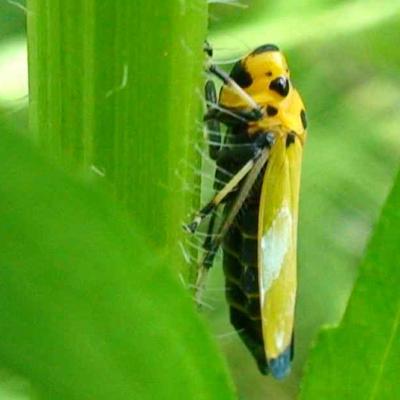
Bothrogonia ferruginea
- classification
Cicadellidae
- appearance period
April to October
- distribution
Korea, Japan, China and Taiwan
- form
It is around 11.0~13.5-millimeter-long. It is one of the largest species from the family cicadellidae. When they are living, the back of body is glossy yellowish green but when they are dead, it is changed to orange. The bottom part of body and the end of legs are black. There are three triangle-shaped black spots on the back area of prothorax. Particularly, the ends of fore wings have black bands.
- ecology
They are usually observed in the forest and emerge once a year. They survive winter as imagoes, and are usually active from late April. They live on wild mulberry trees or mulberry trees, and sometimes do harm to grass. They also sometimes damage broad-leaved trees including sand pear, and produce excretion just like drizzling under the trees as well as cause sooty mold.


